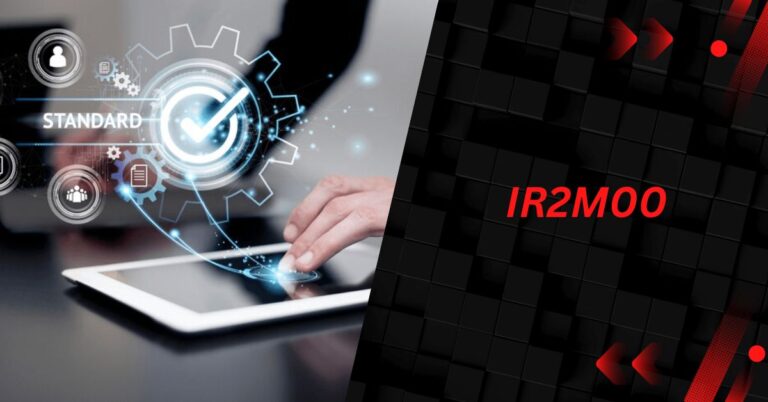Comprehensive Guide to “Blanko Therapy WBEZ Interview 5/29/24 Chicago”
During the WBEZ interview on May 29, 2024, I shared my journey with Blanko Therapy and how it transformed my life. This personalized approach not only helped me manage my anxiety but also empowered me to reclaim my mental well-being. The therapy’s tailored strategies have been a game-changer in my recovery.
On May 29, 2024, WBEZ’s Chicago broadcast featured a compelling discussion about Blanko Therapy, revealing its groundbreaking approach to mental health. This interview shed light on how this innovative therapy is making a significant impact on individuals seeking personalized mental health solutions.
We’ll uncover the profound insights shared during the WBEZ interview, highlight the transformative potential of Blanko Therapy, and discuss how this innovative approach can revolutionize mental health treatment.
What is Blanko Therapy?
Blanko Therapy is a new method in the field of mental health, focusing on the integration of cognitive-behavioral techniques, mindfulness practices, and personalized therapy plans.
Unlike traditional therapies that often follow a one-size-fits-all approach, Blanko Therapy is tailored to meet the specific needs of each individual, making it a highly customizable and effective treatment option.
The Origins of Blanko Therapy
The Genesis of a New Therapy
The concept of Blanko Therapy was developed by Dr. Sarah Blanko, a renowned psychologist with over 20 years of experience in mental health. Dr. Blanko identified a gap in existing therapeutic approaches, where patients often struggled to find treatments that addressed their unique mental health challenges.
Through years of research and clinical trials, Dr. Blanko developed this innovative therapy, which combines elements of cognitive-behavioral therapy (CBT), mindfulness, and personalized treatment plans.
The Evolution of Therapy Techniques
Traditional therapy methods have long been the cornerstone of mental health treatment, but they are not without limitations.
Cognitive-behavioral therapy, for instance, has been highly effective for many, but its rigid structure can sometimes leave patients feeling unheard or misunderstood. Blanko Therapy seeks to overcome these limitations by offering a more flexible, patient-centered approach.
The WBEZ Interview: A Turning Point
Why the WBEZ Interview Matters
The WBEZ interview on May 29, 2024, was a significant event in the mental health community. It marked the first time Blanko Therapy was introduced to a wider audience, providing an in-depth look at how this therapy works and its potential benefits.
The interview featured Dr. Sarah Blanko herself, along with several patients who had undergone the therapy, offering firsthand accounts of their experiences.
Key Takeaways from the Interview
During the interview, Dr. Blanko explained the core principles of Blanko Therapy, emphasizing its adaptability and personalized nature.
She highlighted how the therapy is designed to evolve with the patient, adjusting techniques and approaches as needed to ensure the best possible outcomes.
How Blanko Therapy Works?
The Core Components of Blanko Therapy
- Cognitive-Behavioral Techniques: At its core, Blanko Therapy incorporates cognitive-behavioral techniques to help patients identify and change negative thought patterns. This is done through a series of structured sessions where patients learn to recognize triggers and develop healthier coping mechanisms.
- Mindfulness Practices: Mindfulness is a key element of Blanko Therapy. Patients are encouraged to practice mindfulness daily, helping them stay present and grounded. This is particularly beneficial for those struggling with anxiety, depression, or stress.
- Personalized Treatment Plans: What sets Blanko Therapy apart is its personalized approach. Each patient’s treatment plan is tailored to their specific needs, taking into account their mental health history, current challenges, and future goals.
The Patient Experience
Blanko Therapy is designed to be a collaborative process between the therapist and the patient. From the very first session, patients are encouraged to actively participate in their treatment, providing feedback and sharing their thoughts on the techniques being used.
This collaborative approach ensures that the therapy remains relevant and effective throughout the treatment process.
Benefits of Blanko Therapy
Why Choose Blanko Therapy?
- Personalization: The most significant benefit of Blanko Therapy is its personalized approach. No two patients are the same, and Blanko Therapy acknowledges this by creating unique treatment plans for each individual.
- Flexibility: Blanko Therapy is flexible, allowing adjustments to be made as the patient progresses. This ensures that the therapy remains effective and continues to meet the patient’s needs over time.
- Holistic Approach: By combining cognitive-behavioral techniques with mindfulness practices, Blanko Therapy offers a holistic approach to mental health treatment. This makes it an effective option for a wide range of mental health issues.
Patient Testimonials
During the WBEZ interview, several patients shared their experiences with Blanko Therapy. They spoke of how the therapy had helped them overcome challenges they had struggled with for years, from anxiety and depression to PTSD and stress management. These testimonials provided valuable insights into the real-world impact of Blanko Therapy.
The Science Behind Blanko Therapy
Research and Clinical Trials
Blanko Therapy is not just a concept; it’s backed by years of research and clinical trials. Dr. Blanko and her team have conducted numerous studies to validate the effectiveness of this therapy, with promising results.
Patients who have undergone Blanko Therapy have shown significant improvements in their mental health, often surpassing the outcomes of traditional therapies.
Understanding the Brain
One of the key aspects of Blanko Therapy is its focus on understanding the brain. Dr. Blanko’s approach is rooted in neuroscience, with a strong emphasis on how the brain processes information and responds to different stimuli.
By leveraging this knowledge, Blanko Therapy aims to rewire the brain’s response to negative thoughts and emotions, leading to lasting change.
Comparing Blanko Therapy to Other Therapies
Blanko Therapy vs. Cognitive-Behavioral Therapy (CBT)
While Blanko Therapy incorporates cognitive-behavioral techniques, it goes beyond what traditional CBT offers. Unlike CBT, which often follows a fixed structure, Blanko Therapy is more adaptable, allowing for a more personalized approach.
This flexibility can lead to better outcomes, particularly for patients who do not respond well to conventional CBT.
Blanko Therapy vs. Mindfulness-Based Stress Reduction (MBSR)
Mindfulness-Based Stress Reduction (MBSR) is another popular therapy method, focusing on mindfulness practices to reduce stress. While MBSR is effective, it often lacks the cognitive-behavioral component that Blanko Therapy offers.
By combining mindfulness with cognitive-behavioral techniques, Blanko Therapy provides a more comprehensive treatment option.
Blanko Therapy vs. Medication
For many patients, medication is a common treatment option for mental health issues. However, medication often comes with side effects and does not address the underlying issues.
Blanko Therapy offers a non-invasive, side-effect-free alternative that focuses on long-term change rather than temporary relief.
The Future of Blanko Therapy
Growing Popularity
Since the WBEZ interview, Blanko Therapy has seen a surge in popularity. Mental health professionals across the country are beginning to adopt this approach, recognizing its potential to transform the field of mental health treatment.
Ongoing Research
Dr. Blanko and her team continue to conduct research to refine and improve Blanko Therapy. As more data becomes available, the therapy is expected to evolve further, offering even more effective treatments for a wider range of mental health issues.
Potential Challenges
Like any new therapy, Blanko Therapy faces challenges. One of the main obstacles is gaining widespread acceptance in the mental health community. However, with ongoing research and increasing patient success stories, it is likely that Blanko Therapy will continue to grow in popularity.
How to Get Started with Blanko Therapy?
Finding a Qualified Therapist
If you’re interested in trying Blanko Therapy, the first step is to find a qualified therapist. Look for a licensed mental health professional who has been trained in Blanko Therapy and has experience in treating patients with similar issues.
What to Expect in Your First Session
During your first Blanko Therapy session, your therapist will conduct a thorough assessment to understand your mental health history, current challenges, and treatment goals. This assessment will form the basis of your personalized treatment plan.
Setting Realistic Goals
One of the keys to success with Blanko Therapy is setting realistic goals. Your therapist will work with you to identify achievable objectives and develop a plan to help you reach them. Remember, therapy is a journey, and progress may take time.
FAQs about Blanko Therapy
1. What is Blanko Therapy?
Blanko Therapy is a personalized mental health treatment that combines cognitive-behavioral techniques, mindfulness practices, and individualized therapy plans to address a wide range of mental health issues.
2. Who developed Blanko Therapy?
Blanko Therapy was developed by Dr. Sarah Blanko, a psychologist with over 20 years of experience in mental health.
3. How does Blanko Therapy differ from other therapies?
Blanko Therapy differs from other therapies in its personalized approach, flexibility, and combination of cognitive-behavioral techniques with mindfulness practices.
4. Is Blanko Therapy suitable for everyone?
While Blanko Therapy can be beneficial for many, it may not be suitable for everyone. It’s important to consult with a qualified therapist to determine if it’s the right option for you.
5. How long does Blanko Therapy take?
The duration of Blanko Therapy varies depending on the individual and their treatment goals. Some patients may see improvements within a few months, while others may require longer-term treatment.
Conclusion
The “Blanko Therapy WBEZ Interview 5/29/24 Chicago” has brought this innovative therapy to the forefront of the mental health field. With its personalized approach, flexibility, and combination of cognitive-behavioral techniques and mindfulness practices, Blanko Therapy offers a promising alternative to traditional mental health treatments. As research continues and more patients experience its benefits, Blanko Therapy is poised to become a leading option in the






